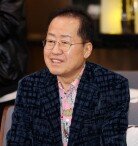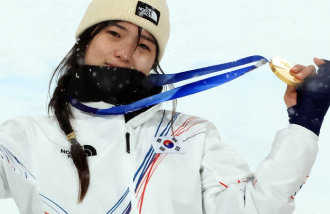North Korea continues its provocations
North Korea continues its provocations
Posted January. 17, 2024 07:37,
Updated January. 17, 2024 07:37
In the aftermath of the North Korea-Russia summit in September 2023, my earlier column delved into the realm of bilateral military cooperation. While it seemed that North Korea had supplied weapons to Russia, no clear evidence indicated that Russia reciprocated with the transfer of sensitive military technology to North Korea. The mere act of inviting Kim Jung Un might have been deemed sufficient by Russian President Vladimir Putin, who likely believed that he had rightly reciprocated Kim’s favor.
Following the summit, North Korea has engaged in a series of provocations. In November 2023, it launched a military reconnaissance satellite named “Manrigyong-1,” achieving orbit after two previous failures. December witnessed the firing of the solid-fuel intercontinental ballistic missile (ICBM) named “Hwasong-18,” which was lofted at an angle with a peak altitude exceeding 6,000 kilometers. More recently, North Korea tested a solid-fuel, hypersonic intermediate-range ballistic missile (IRBM), demonstrating its capability for sudden strikes.
Speculation among experts suggests that Russia’s support underlies Pyongyang’s confident provocations. An intelligence officer noted that, apart from North Korea, no other nation could offer unconditional support to Russia without concerns about neighboring nations. The urgency for weaponry has led Putin to consider North Korea’s requests for military technology seriously. The Ukrainian president disclosed that Russia had received over a million rounds of ammunition from North Korea. The White House also highlighted instances in which North Korea supplied ballistic missiles to Russia. The South Korean government anticipates that North Korea’s consistent provision of various weapons will no longer remain unreciprocated by Russia.
In my earlier column, I emphasized that allowing Putin unchecked freedom of action could give Kim Jong Un a significant advantage. The deepening, almost honeymoon-like, relationship between North Korea and Russia, primarily built around North Korea’s provision of weapons, necessitates a strategic approach. If separating Kim Jong Un from Putin proves unviable, a tailored strategy to curb Russia’s aggression must be devised. The last thing we want to encounter is a scenario where Kim gains access to the manual for a nuclear submarine.
Jin-Woo Shin niceshin@donga.com




![월 800만 원 버는 80대 부부 “집값만 비싼 친구들이 부러워해요”[은퇴 레시피]](https://dimg.donga.com/c/138/175/90/1/wps/NEWS/IMAGE/2026/02/13/133363096.4.jpg)

![요즘 ‘인증샷’은 바로 여기…2030 몰리는 ‘한국의 가마쿠라’[트렌디깅]](https://dimg.donga.com/c/138/175/90/1/wps/NEWS/IMAGE/2026/02/13/133334396.3.jpg)
